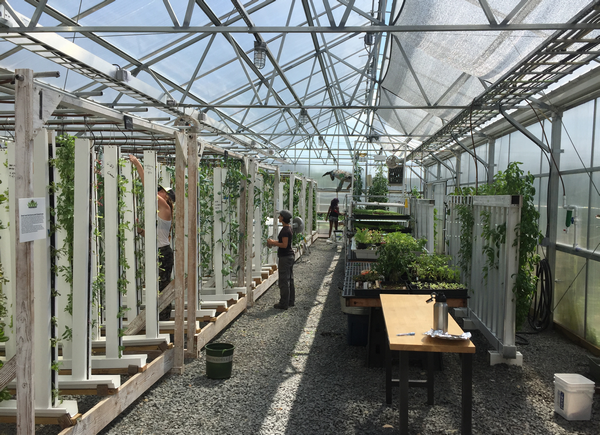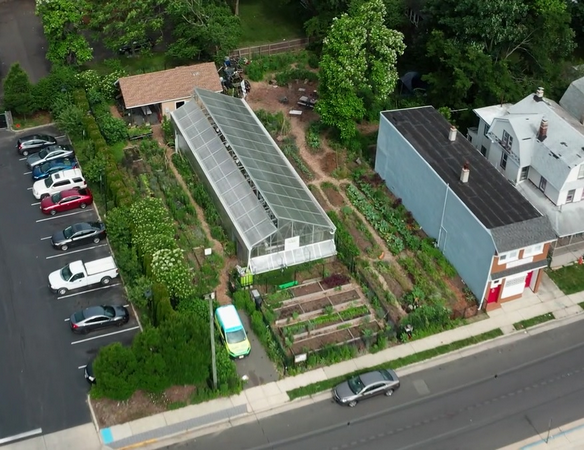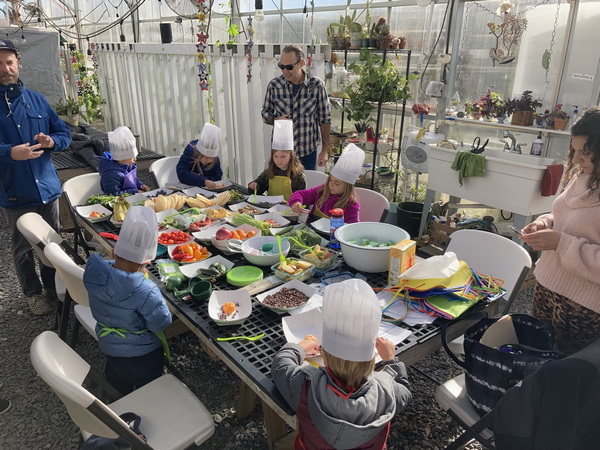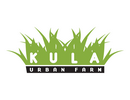Although New Jersey has often been nicknamed “the garden state” because of its great farming history, much of the farmland is being redeveloped into housing. This has raised the demands for fresh produce, Matthias van Oosterhout, Farm Operator with Kula Farms in Asbury Park, found.
“We used to supply to restaurants only. However, when restaurants were closed for the lockdown, we had to shift focus. When we opened an online store for the general public, we discovered a huge demand there. Now we are doing both, so we came out stronger in the end.”
Catering to the community
“Our farm is situated in a very economically divided town. While life is prospering and new restaurants are opening up regularly on the east side of town, the west side is lacking re-development and has a higher unemployment rate,” Matthias states.

The hybrid growing solution
Kula Farm is based on the west side, which was designated as a food desert, meaning that there is no easy access to fresh produce. Therefore, Matthias, amongst others, started a hybrid farm that gives job opportunities to direct neighbors, while selling the produce to the ‘fancy’ restaurants on the other side of town. This way we let the west-side residents benefit from the economic opportunities of the east side, and also make free fresh produce available to the neighborhood.”
Indoor and outdoor growing
Kula Farms is a farm, growing outside, during the growing season, and inside a greenhouse with vertical towers. Every season they try out new products. “Outside, during the season, we cater to our local community, of which many origins from the south, meaning we grow collard greens, okra and everyone likes peppers and tomatoes. We also do gooseberries, strawberries, raspberries, elderberries, and have fig, peach, apple and pear trees. Additionally, we grow many herbs like thyme, sage and rosemary.”

A helicopter view of the urban farm
The greenhouse features vertical growing towers. “Growing in three dimensions simply means we can fit more plants in one area. Inside, we mostly grow salad mixes, different varieties of kale, chard, basil, and microgreens. The greenhouse is 25 by 75 feet or 8 by 22 meters, and also good to know is that our grow towers are up to 6ft/2m tall.”
Job opportunities
Despite this wide range of produce, profit is in fact not the highest goal for the company. At Kula Farms, growing jobs is as important as growing plants. The company, which in fact is also a social enterprise, offers jobs to whoever needs one without running background checks.
“Often our workers come into work kind of feeling down, with their heads down and mumbling that they’re doing alright. But then we put on some music and they start working with the plants, get their senses tickled with smells and soon they’ll be singing along and go home happy and refreshed. It’s a safe place for them, they can drop their guard, with no judgment and a good vibe overall.”

'Young cooks' are trying out the fresh produce
Positive impact
Not only workers respond positively to the ambiance at Kula Farms. Also, customer response has been enthusiastic. “Our grow beds outside are lined with flowers and my colleague is an artist that showcases her art around the farm. We make a great effort to revitalize this neighborhood by simply picking up trash and creating lush flower beds. The chefs like our produce and also are willing to pay a bit extra for food that didn’t have to travel from far.”
Besides sales and donations, Kula Farms has recently received a large grant from the Gannet Foundation to improve its facility. To even expand their Farm to Table goals, they will now add a kitchen in order to accommodate their Farm to Table Dinner chefs.
“Some of the chefs from restaurants that we sell to, donate their time to provide a great fine dining experience which generates more revenue than growing lettuce and kale. We reserved a section in our greenhouse to set up a long table where we can seat about 20 people.”
 For more information:
For more information:
Matthias van Oosterhout, Farm manager
[email protected]
Kula Urban Farm
115 Atkins Ave
Asbury Park, NJ
+1 732-455-0511
www.kulafarm.org
